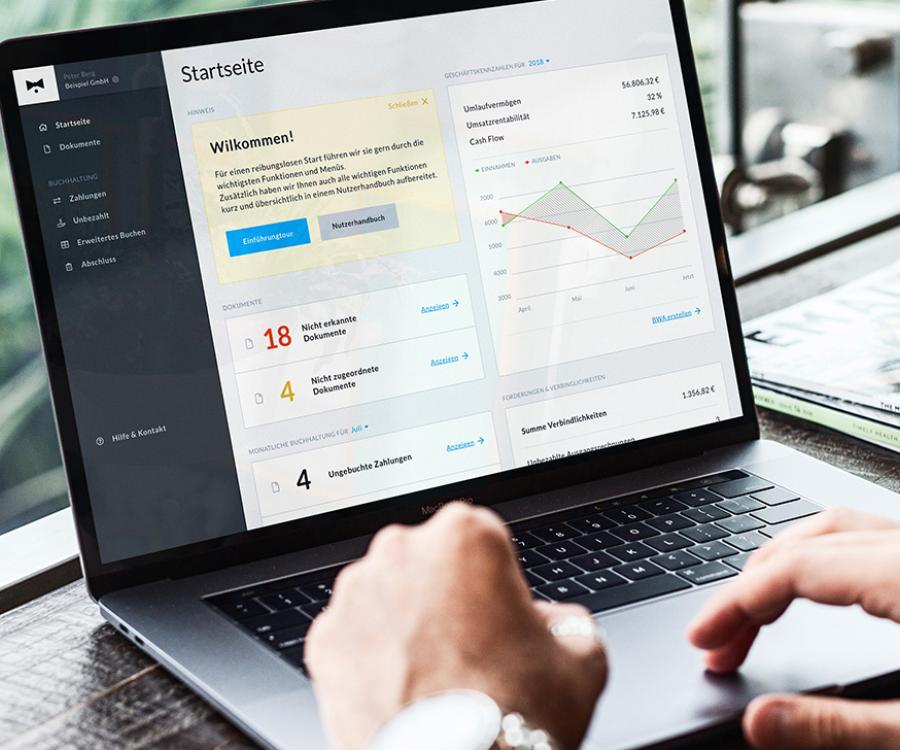
The eCommerce market is shaped in particular by its dynamics. Developments and trends move a lot faster than in pure brick-and-mortar retail and online retailers need to be able to respond quickly and remain flexible to changes in the market. In an interview at Internet World 2015, Webdata CMO Alexander Reschke explains how retailers can find their optimal strategy by utilizing big data and dynamic market research solutions.
Mr. Reschke, first a very basic question: what exactly is the difference between classic and dynamic market research?
Simply put, unlike classic market research, dynamic market research doesn’t just work selectively, but continuously and in real-time. In a traditional market research project, a specific portion of the market is analyzed over a predetermined period – usually over several months. The results are subsequently evaluated and not until then is the retailer able to respond to the gained insights.
In contrast to dynamic market research, early usable results are already available after a few days. What’s more, it can be directly applied: the results flow directly into a business intelligence tool and the retailer receives concrete recommendations.
How can retailers apply dynamic market research in their typical workday?
A fashion retailer can monitor specific product categories for instance and determine what colors and materials are especially popular with customers at the moment. In doing so, a retailer is not just able to observe market trends, but also the competitor’s selection of products. This is an important information advantage, especially for smaller retailers.
What exact benefits does this offer the retailer?
At this point, the eCommerce market is no longer shaped by extremely strong growth, but has become a cutthroat competition. This is why it is becoming more and more important for online retailers to set themselves apart from their competitors in the market. And this truly only works well by supporting your own strategy with the corresponding data. In doing so, the retailer is able to offer his customers services that are tailored to them for instance.
One of our customers is a specialized online retailer for baby and toddler products for example. This retailer utilizes the data gathered from the parents‘ buying patterns to draw conclusions on the exact age of the child and subsequently offer the parents products specifically tailored to them.
What does this mean for a company’s software setup? What solutions should the retailer utilize and what do these need to achieve?
To really obtain all important data a retailer should use multiple software modules. This initially includes a price management solution. In this case, you monitor the prices of various items the retailer carries in his own product selection. He can subsequently track pricing by competitors for each individual item and utilize this information to optimize his own product prices. This type of solution makes it possible to support your own pricing strategy and then automatically obtain competitive and still optimal selling prices for each individual article.
The second big topic is product management, that being product mix optimization. In this instance, the focus is on product features to identify market trends. In fashion retail, this would be a color for example or the material of a garment that sells particularly well at the moment. This type of solution facilitates automated benchmarking of your own product mix – based on observing your competitors – and closes gaps in your own product line.
What’s also very important is a market alert function. The system automatically alerts the retailer when competitors launch a promotional campaign for instance or add new products into their product mix. You can subsequently trace how each product is being received in the market. Based on this information, the retailer is subsequently able to decide whether to include the item into his own product mix.
Does classic market research not lose its right to exist as a result?
I personally don’t believe that, since they both have their own distinct advantages. Dynamic market research delivers quick and flexible results; classic market research on the other hand goes into more detail, researches customer requirements extensively and contacts the end customer directly. The insights from these analyses will continue to be important in the future of course. Dynamic market research is virtually the link to the fast moving eCommerce market. When a retailer combines both options, he has all the tools to both respond to market changes in a quick and flexible manner and not lose sight of his long-term strategy.
Which retailers use these solutions? Are those more the online pure players or do brick-and-mortar retailers also utilize dynamic market research at this point?
We have noticed for some time now that brick-and-mortar and multichannel retailers are also increasingly interested in utilizing big data. Many small brick-and-mortar retailers now realize that they cannot do without an online strategy if they want to continue to be successful on the market. Of course, these retailers have a certain disadvantage when it comes to online know-how – especially compared to the online pure players. Intelligent data analysis helps them to close these gaps and successfully position themselves online.
These days, can a retailer actually be still successful without utilizing big data?
Here you need to clearly state that collecting and utilizing this data is a must for retailers! Ecommerce is characterized by dynamic market development and quickly developing trends. At the same time, customer loyalty is relatively low, while the degree of market transparency is high. That’s why compared to a brick-and-mortar retailer, it is significantly harder for an online retailer to keep creating new incentives for customers to buy. Especially with current cutthroat competition in online retail, data-driven companies are clearly more successful.
Interview by Daniel Stöter, iXtenso.com









